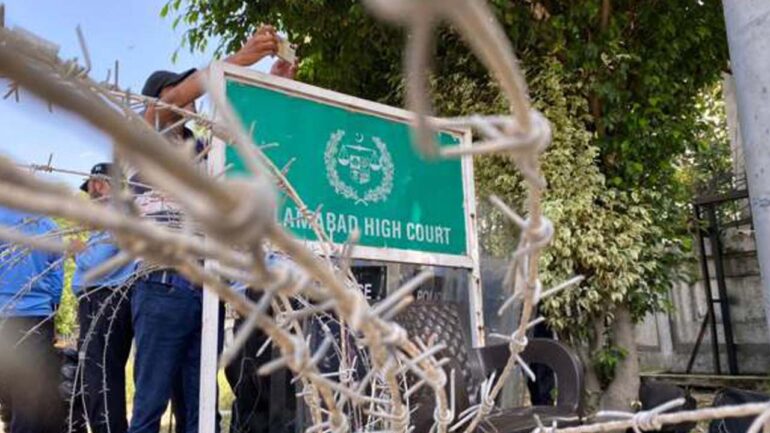Pakistan Tehreek-e-Insaf (PTI) Chief Imran Khan on Wednesday challenged his indictment in the cipher case at the Islamabad High Court (IHC).
The case revolves around allegations of violating the Official Secrets Act by Imran Khan and his deputy, Shah Mahmood Qureshi last year by misusing and misplacing diplomatic cables involving conversations between Pakistan’s envoy to Washington and a US diplomat during Khan’s tenure.
In his petition, Khan, represented by his counsels Salman Safdar and Khalid Yousaf, urged the IHC to nullify his indictment, pointing out procedural irregularities.
The charges asserted that Khan “illegally retained and wrongly communicated” the cipher, which contained top-secret information between the United States and Pakistan. It was alleged that Khan used this information in a public gathering, violating the interests of the State of Pakistan.
The petitioner argued that the special court’s indictment was rushed, emphasizing the absence of essential evidence (cipher) for the trial to proceed. Khan’s legal team contended that the trial court didn’t fulfill legal requirements and had been hasty in its proceedings, affecting fundamental constitutional rights.
They also stressed that the IHC had not directed the special court to expedite the trial.
Khan and Qureshi are presently in Adiala jail on judicial remand related to the cipher case. The charges were brought under the Official Secrets Act, accusing Khan of keeping the cipher to himself and misusing classified information for political gain.
The cipher controversy began in March 2022 when Khan, shortly before his removal from power, brandished a letter at a public rally, claiming it was a cipher from a foreign nation plotting against his government. He accused the United States of conspiring against him, although he didn’t disclose the letter’s contents or its sender. Subsequent investigations and audio leaks implicated Khan, former federal minister Asad Umar, and former principal secretary Azam Khan in discussions about the US cipher.
The case took a significant turn when the National Security Committee (NSC) found no evidence of foreign conspiracy in the cable. However, subsequent purported audio leaks led to the federal cabinet initiating action against Khan, resulting in the case being handed over to the Federal Investigation Agency (FIA).
The FIA’s charge sheet included Khan and Qureshi as accused, with Qureshi being accused of aiding and abetting Khan in the misuse of the cipher. Both accused parties have pleaded not guilty.



